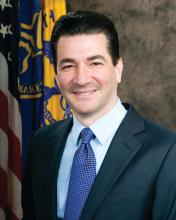Manufacturers developing the next generation of drugs to help combat opioid use disorder could have a broader set of outcome measures to target when bringing their products before the Food and Drug Administration for approval.
Traditionally, the FDA has used a reduction in drug-taking behavior as the endpoint for approving a medication-assisted treatment to combat opioid use disorder. But a draft guidance issued Aug. 6 could change that.
The guidance, “Opioid Use Disorder: Endpoints for Demonstrating Effectiveness of Drugs for Medication-Assisted Treatment,” proposes numerous clinical endpoints, including reduction in adverse outcomes of opioid use disorder, (for example, mortality, the need for emergency medical interventions, or hepatitis C seroconversion); change in the disease status using diagnostic criteria for opioid use disorder; development of patient-reported outcome measures; or changes in drug use patterns other than the commonly used endpoint of abstinence.
, such as the ability to resume work or school.
“The evidence is clear. Medication-assisted treatment works, and it is a key piece of defeating the drug crisis facing our country,” Department of Health and Human Services Secretary Alex Azar said in a statement. He added that the new guidance has “the potential to bring new medications to market that are more closely tailored to patient needs and help give Americans facing addiction a better change at recovery.”
FDA Commissioner Scott Gottlieb, MD, added in the statement: “We must consider new ways to gauge success beyond simply whether a patient in recovery has stopped using opioids, such as reducing relapse overdoses and infectious disease transmission. Treatments that can impact these aspects of addiction can be important parts of a comprehensive approach to the treatment of opioid use disorder.”
Guidance comments are due Oct. 9 and can be submitted online here.


